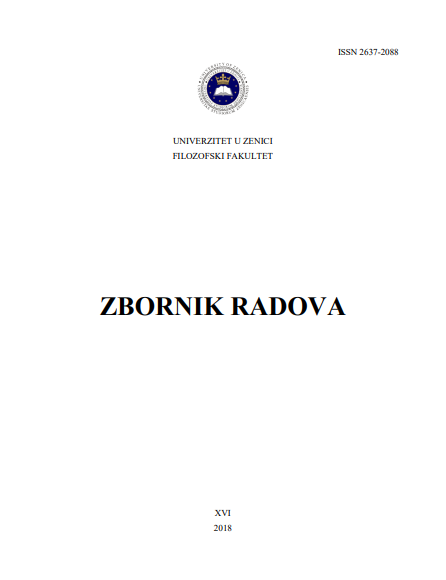Značenjski tipovi nekongruentnog atributa u genitivu u romanu Talhe ili Šedrvanski vrt Irfana Horozovića
Semantic Types of Incongruent Attribute in Genitive in the Novel Talhe ili Šedrvasnki Vrt by Irfan Horozović
Author(s): Esmeralda MustafićSubject(s): Studies of Literature, Syntax, Semantics, Theory of Literature
Published by: Filozofski fakultet, Univerzitet u Zenici
Keywords: sentence elements; incongruent attribute; genitive; semantic categories;
Summary/Abstract: Syntactic language system presents complex relation of interior, invariant relations within words and sentences. In the last two decades, syntax has become the object of research of many linguistic studies. Many linguists are going from the hypothesis that language is group of sentences which rest on surface and depth organisation. This claim means that we have to analyse syntactic relations. That implies analysis of elements which are considered as basic of any sentence, and those elements are independent. Beside those elements, there are elements which traditional grammar considers dependent elements of sentences. In those elements we include attribute and apposition. Theme of this paper is attribute. Specifically, theme will bi narrowed on incongruent attribute in genitive in the novel of Irfan Horozović Talhe ili Šedrvanski vrt. Incongruent attribute doesnt't follow grammatical marks of gender, number or case of the main word. Examples of incongruent attribute are being researched so to get some knowledge about semantic categories of genitive.
Journal: Zbornik radova Filozofskog fakulteta
- Issue Year: 2018
- Issue No: XVI
- Page Range: 46-50
- Page Count: 5
- Language: Bosnian

